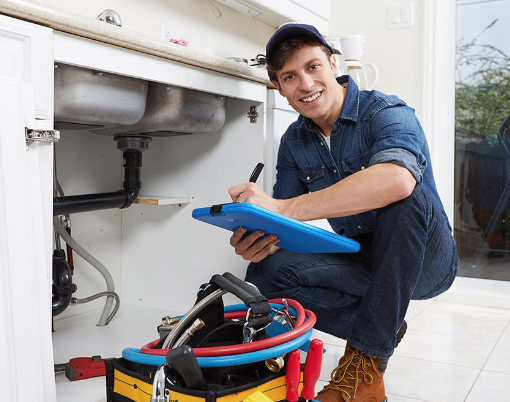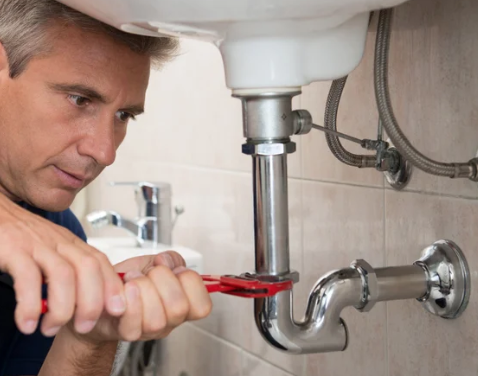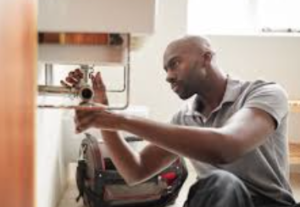
In an era where environmental consciousness is increasingly prioritized, adopting sustainable practices in every aspect of our lives has become essential. This includes our plumbing systems, which play a significant role in water conservation, energy efficiency, and reducing our ecological footprint. In this comprehensive guide, we’ll explore the concept of green plumbing and highlight sustainable solutions that homeowners can implement to create a greener home.
1. Understanding Green Plumbing
Green plumbing, also known as sustainable plumbing or eco-friendly plumbing, focuses on minimizing water usage, reducing energy consumption, and preventing pollution in the plumbing system. It involves the use of innovative technologies, eco-friendly materials, and water-saving practices to achieve these goals while maintaining the functionality and comfort of the home. By adopting green plumbing practices, homeowners can not only reduce their environmental impact but also save money on utility bills in the long run.
2. Water-Saving Fixtures and Appliances
One of the most effective ways to achieve water conservation in the home is by installing water-saving fixtures and appliances. Low-flow toilets, water-efficient showerheads, and aerated faucets are just a few examples of fixtures that use less water without sacrificing performance. Similarly, energy-efficient dishwashers and washing machines can reduce both water and energy consumption, further minimizing the home’s environmental footprint. By replacing outdated fixtures and appliances with water-saving alternatives, homeowners can significantly reduce their water usage and utility costs. Our family friend Lenny who is one of the top Las Vegas demolition contractors, works with plumbers pretty often. One of Lenny’s clients sink’s keeps running all day and all night, and he called Vegas plumbing to come out and make it more energy efficient and to stop running. Its quick fixes like these that can make anyone’s home more efficient all year round.
3. Rainwater Harvesting Systems
Rainwater harvesting systems are another sustainable solution that homeowners can implement to reduce their reliance on municipal water supplies. These systems collect rainwater from rooftops and store it in tanks or cisterns for later use in irrigation, flushing toilets, and other non-potable applications. By harnessing rainwater for outdoor use, homeowners can conserve precious freshwater resources and reduce the strain on local water supplies, especially in areas prone to drought or water scarcity.
4. Greywater Recycling Systems
Greywater recycling systems offer another innovative way to conserve water and minimize waste in the home. These systems capture and treat wastewater from sinks, showers, and washing machines, allowing it to be reused for irrigation, toilet flushing, and other non-potable purposes. By recycling greywater onsite, homeowners can reduce their water usage, lower their utility bills, and minimize the environmental impact of their household activities. Additionally, greywater recycling systems can help alleviate pressure on municipal wastewater treatment facilities and reduce the risk of pollution in waterways.
5. Sustainable Plumbing Materials
In addition to water-saving fixtures and systems, choosing sustainable plumbing materials can further enhance the eco-friendliness of your home. For example, opting for pipes and fittings made from recycled or eco-friendly materials, such as copper, stainless steel, or cross-linked polyethylene (PEX), can reduce the environmental impact of your plumbing system. Similarly, selecting low-impact materials for fixtures, such as bamboo or recycled glass, can minimize resource consumption and waste generation. By prioritizing sustainable materials in your plumbing projects, you can create a more environmentally responsible home while supporting the growth of the green building industry.
In conclusion, green plumbing offers a wealth of opportunities for homeowners to reduce their environmental impact, conserve water and energy, and create a more sustainable home. Whether through water-saving fixtures, rainwater harvesting systems, greywater recycling, or sustainable materials, there are countless ways to implement eco-friendly practices in your plumbing system. By embracing green plumbing principles, homeowners can not only contribute to a healthier planet but also enjoy long-term savings and benefits for themselves and future generations.

